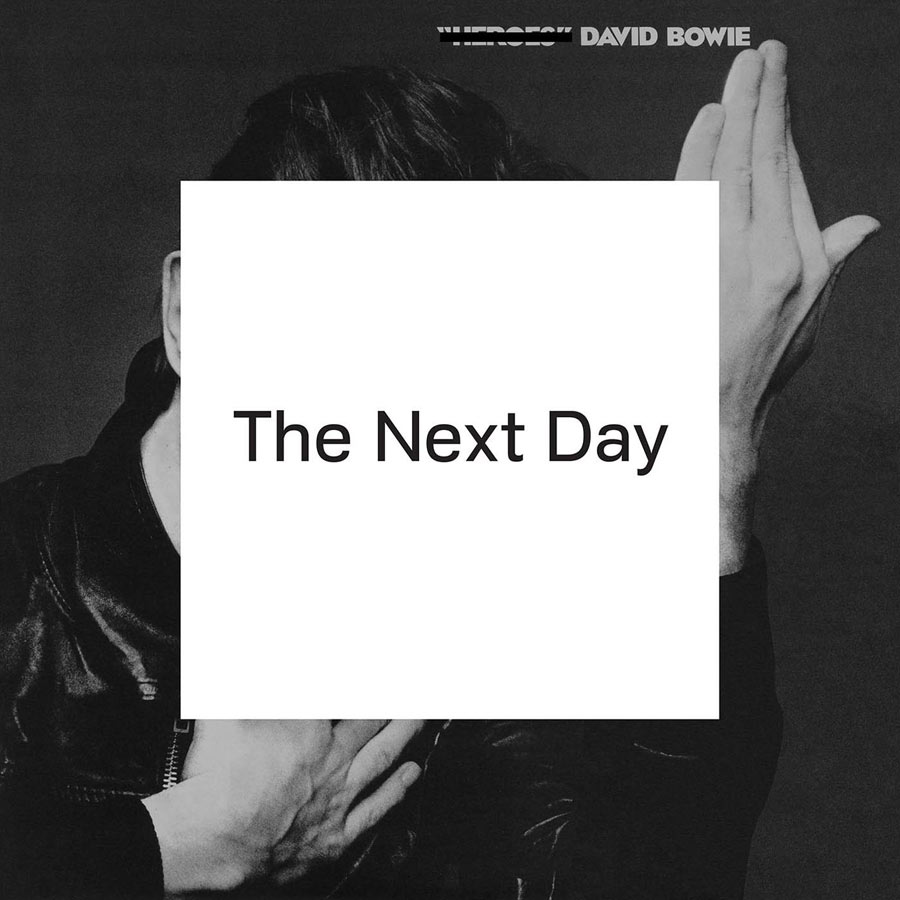This obviously sounds like I'm being harsh and cynical and probably makes it sound like I'm dismissing Bowie as an artist. Of course not. The Rise and Fall of Ziggy Stardust and the Spiders From Mars is one of the greatest albums ever recorded and the list of amazing songs is never endings, and anyone that hasn't just laid down after a long day and had a Bowie session yet is just wrong. But when the announcements came on Bowie's 66th birthday that an album of new material was coming out for the first time since 2003's Reality and the lead single Where Are We Now? was released accompanied by a peculiar video of Bowie and wife-of-video-director Jacqueline Humphries face's placed together as they are joined in one puppet body (That made no sense whatsoever.), it was not instant, nor did it feel like something anyone could fall in love with straight away, as I previously had so so much of the man's back catalogue. And yet Bring Me the Horizon's Shadow Moses got me straight away, rendering me a disgrace to the face of real music reviewers. Only a full album listen could possibly rectify any possible doubts about one of the UK's biggest musical icons.
Before even elaborating on the music, it's clear that Bowie has wanted to turn heads simply by announcing new music. After he failed to make an appearance appearance at last year's Closing Ceremony for the London 2012 Olympics despite a huge buildup and montage of clips that suggested he would be there with the world watching, most people would have assumed that as the final sign that he was done with performing and writing music. And yet, here we are with his 24th album The Next Day streaming on iTunes five days before it's official release. What sparked this decision to record again? And will it satisfy those who thought they were going to be able to hear Starman performed live in front of millions of people worldwide?
That's a question I don't think I could answer fully yet. You couldn't really picture young people that wear T-Shirts depicting Bowie as Ziggy Stardust and only know Changes getting down to slow-burning jams like Dirty Boys and there's nothing that even comes close to having the kinetic energy of Suffragette City but if you're as in touch and experienced in the art of music, then there's no excuse for you to not find something lovable throughout The Next Day.
There's every right to feel cautious as you begin listening to this album, there's no knowing of how it could start of when the sounds are yet to pounce into your ears, thankfully perhaps it opens in an inviting manner on the warm melodies that ride across the album's title track, filled with richly textured melodies of the golden days of rock and roll. It would be too easy to say that vocal wise Bowie is past his prime and it is truth. The man himself is most likely aware of this and most likely cares not for the issues surrounding them because as he belts out the song, it's done with so much vibrancy and passion that he could get through the entire song without ever being hailed for being an influential musician and you would still want to credit his efforts. It's the performance of a man that undeniably believes in what he's saying and could never have connotations of re-hashing material or not caring.
If you did have worries that this was going to be an album awash with mid-tempo nuisances you need not worry. Arguably, there's a balance, but where things pick up, the shimmering production and continuously rich textures makes each song feel like a fresh intake of new musical wonders that you can drift into without being fully aware of your musical venturing until some big melody like that in Love is Lost, the warm psychedelia of Valentine's Day or the energetic and hypnotic poundings of If You Can See Me. The most notable songs of the up-tempo moments is the heavier garage rock riff-fest of (You Can) Set the World On Fire which brings back memories of Tin Machine, the proper rock band that Bowie started near the end of the 1980's which seems to be a forgotten part of Bowie's career, even though the only album they released is seen as one of the early roots of the grunge movement that followed in the next decade.
And for all the bickering I've delivered about the slower material up to this point, it's actually highly substantial and is home to some of the most commendable moments of the album. Where Are We Now itself is a touching ode to Bowie's time in spent in West Berlin from 1979-1979 to cure himself of drug addiction where he would perform at late night sessions with Iggy Pop and record Heroes, Low and Lodger. From the lyrics, it's a song of the Berlin that Bowie knew back then and a tribute to how it's changed for the better as he did during his time there. The Stars (Are Out Tonight) also serves as a song recorded to be a feel good classic with a tone of sincerity and melodrama while You Feel Lonely You Could Die carries off the balladry in a tone reminiscent of Rock and Roll Suicide. And after so many songs of a similar vein, choosing to end the album on Heat is the final move to turn heads of the listeners. It's possibly one of Bowie's darkest and most intense songs recorded, taking the dirgy atmospheres of the Berlin trilogy into a new modern darkness. Clearly, the man still knows how to pen songs to emote proper emotion to widen jaws, even in his prime.
And that's going to be your ultimate reflection when you're done listening to The Next Day after numerous occasions. David Bowie is still a brilliant songwriter. After ten years and 24 albums into his career, we're all still living in Bowie's world and he continues to satisfy his subjects. Yes, we can't deny that like everything since Heroes this is not Bowie's finest work and with the joke of the album's artwork that sees the Heroes cover being blocked up by this new album sleeve, he's aware of this fact as well and the fact that all music critics will acknowledge this. But Bowie has already broken ground and he has no need to do it again. All we really need is a set of songs with a perfect tone of emotion and we're definitely treated to just that with this album. When something like new David Bowie material is announced, it's obviously an obligation to review it. But The Next Day is also a reminder of how much of a pleasure it is to do it as well.

David Bowie's The Next Day is out 11th March via Columbia.


oldmoviesyouneversaw.blogspot.com
ReplyDelete